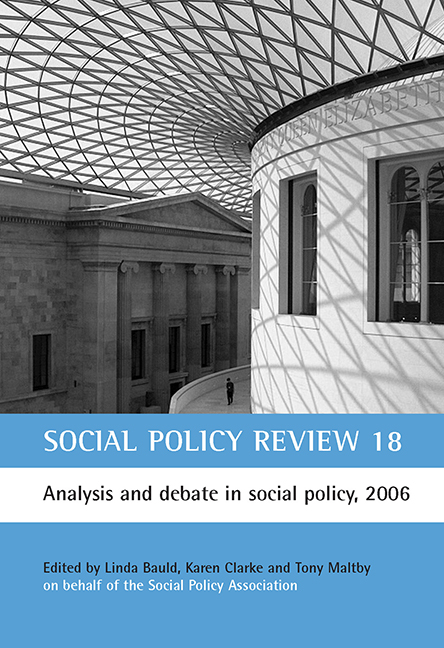nine - Using health and subjective well-being for quality of life measurement: a review
Published online by Cambridge University Press: 15 January 2022
Summary
Introduction
Until very recent times, the single statistic that best predicted the health and well-being of populations was wealth. Even as late as 1972 the economist Wilson remarked that the science of economics is ‘nearest the core of any problem concerning the quality of life’ and that ‘the quality of life of any individual or community can in a direct and simple way be related to income’ (Wilson, 1972, p 131).
Contemporary data from industrialised nations, however, indicate a far more complex picture. Indeed, even as Wilson made his pronouncement there was plenty of evidence that his broad attribution to ‘any’ individual or community was wrong. What is now abundantly clear is that wealth has its strongest, causative power over life quality in the context of poverty. When people are very poor, all of the other objective indicators such as education, housing and physical health are highly sensitive to degrees of wealth. Among more affluent populations, however, the relationship between wealth and other measures of well-being, such as health, are fragile and unreliable (for example, Subramanian et al, 2002). Thus, while such standard statistics as infant mortality rates and disease prevalence are useful to track the progress of developing countries, they have very limited usefulness beyond a certain level of economic development. Consequently, within middle-class samples, all of the individual objective variables, including health, are not strongly predictive of overall ‘well-being’. While wealth can ensure good medical care, it is no safeguard against loneliness or lack of purpose.
As a consequence of this understanding, it has become clear that the simple statistics that reflect physical health no longer suffice to describe the well-being of the middle classes. New measures are required, including more refined measures of health. Various disciplines have become involved in the process of creating such measures. As a result, it has become clear that ‘health’ can be measured in many different ways, each of which provides a different view of population well-being to social policy planners.
This review examines these different measurement technologies with the aim of understanding, and critiquing, the hypothetical constructs each measurement style is intended to represent. The first section describes how the constructs of mental health and life quality have evolved in different ways within medicine and the social sciences.
Information
- Type
- Chapter
- Information
- Social Policy Review 18Analysis and Debate in Social Policy, 2006, pp. 165 - 192Publisher: Bristol University PressPrint publication year: 2006
Accessibility standard: Unknown
Why this information is here
This section outlines the accessibility features of this content - including support for screen readers, full keyboard navigation and high-contrast display options. This may not be relevant for you.Accessibility Information
- 5
- Cited by
